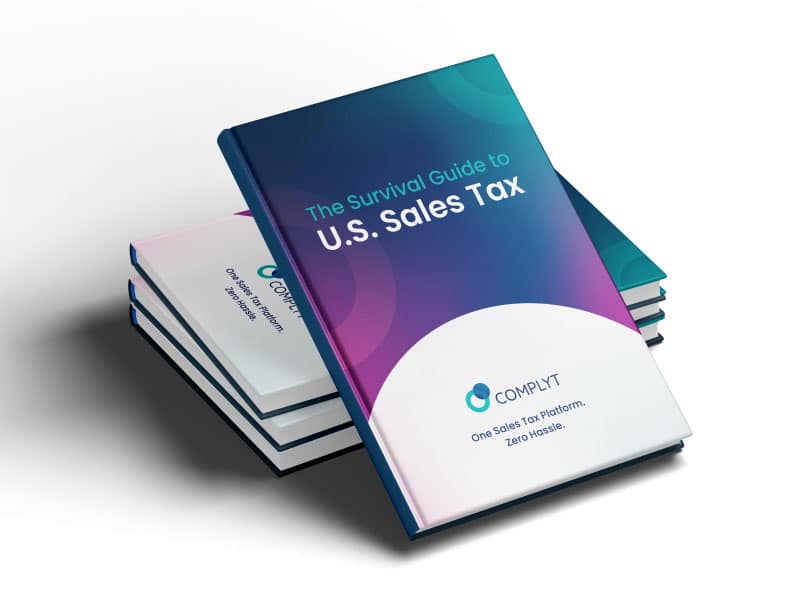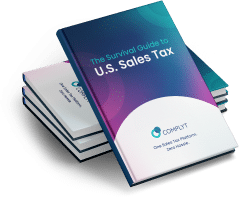What is the sales tax rate in North Carolina?
The combined sales tax rate in North Carolina falls between 6.75 to 7.5%.
This rate includes the state tax of 4.75%, and a local county tax of 2 to 2.75%. So when you’re selling to customers outside of your own jurisdiction, it’s important to keep track of where sales are happening so you can charge the correct sales tax for that specific locale.
For specific local jurisdiction rates, visit the North Carolina Department of Revenue’s website.
Sales Tax North Carolina: When should your business collect Sales Tax in North Carolina?
The obligation of sales tax begins with your nexus in North Carolina. A nexus is established if your business has a physical presence or meets certain economic thresholds.
North Carolina Physical Sales Tax Nexus
If your business has a physical presence, also known as a physical nexus, in Virginia, you’re required to collect and remit sales tax.
Here are just a few key examples of events that could trigger a physical nexus:
- Working from an office or place of business in the state
- Storing goods in a warehouse in the state
- Employing a sales representatives or remote employees in the state
- Ownership of real or tangible personal property in the state
- Having a third-party affiliate partnership with a business in the state
North Carolina Economic Nexus: Revenue, Thresholds, and Transactions
In North Carolina, an economic nexus is established if your business has gross sales in excess of $100,000 or conducts 200 or more separate transactions in the state in the current or previous calendar year.
Which services are taxable in North Carolina?
While services are generally not deemed taxable, North Carolina does impose taxes on specific services, such as:
- Repair, maintenance, and installation services
- Telecommunication services
- Fabrication services
- Certain digital property services
North Carolina Sales Tax on Products: Calculate What Your Business Should be Charging
To calculate how much sales tax to charge, multiply the total amount of the sale by the combined state and local sales tax rate. Be sure to apply the rate of the location where the product is delivered or where the buyer takes possession.
For instance, if you have a nexus in a county that charges a local tax rate of 2.75% on a sale of $100, your total sales price would be $107.50. This is calculated by adding the North Carolina state tax of 4.75% to the local county rate, and factoring the total into your sales price.
How much is the North Carolina clothing tax?
The sale of clothing is subject to the state sales tax of 4.75% as well as local tax rates in North Carolina, which can make the total sales tax as high as 7.75%.
However, alterations and changes to clothing items are exempt from sales tax as long as they are stated separately.
North Carolina Online Sales Tax: Are SaaS and Digital Services Taxable?
Online sales and transactions involving digital goods are increasingly raising questions about their taxability. For North Carolina, the general rule is that only tangible personal property and physical goods are taxable while digital goods and software as a service (SaaS) products are not. However, exceptions do exist, so businesses should stay informed about changes in sales tax law that might affect them.
SaaS Sales Tax North Carolina: Does my Business Need to Charge Sales Tax for SaaS?
No, SaaS and digital services are generally not considered taxable in North Carolina as they do not entail the sale of tangible personal property. As such, businesses offering these services are not yet required to collect and remit North Carolina SaaS sales tax.
However, SaaS sales tax laws are rapidly evolving and as states adapt to the digital business landscape.
How can a business get a sales tax permit in North Carolina?
A business can apply for a North Carolina sales tax permit online via the North Carolina Department of Revenue website. There’s no fee to apply.
Collecting Sales Tax in North Carolina as a Business
North Carolina Tax Return Due Dates Explained
Quarterly returns are due on or before the last day of January, April, July, and October for the preceding three-month period. Monthly returns are due on or before the 20th of the month following the end of the month.
What is the required frequency for sales tax returns in North Carolina?
Filing frequency is generally determined by the amount of sales tax collected by the business and can be monthly, quarterly, or annually.

